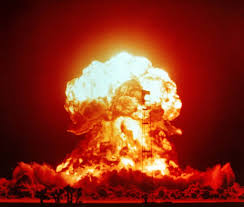
Progressive capitalism is not a shock.
Interessant om het interview met Nobelprijs winnaar Joseph Stiglitz te lezen (NRC 2/7/24). Zijn pleidooi voor een progressief kapitalisme, zijn economische visie, is volgens hem noodzakelijk. De hedendaagse onvoldoende gereguleerde neoliberale markt faalt namelijk en leidt tot vermogens- en dus machtsconcentratie. Wie macht verwerft, is in het huidige systeem spekkoper en zal die macht niet alleen behouden, maar ook uitbreiden ten koste van anderen. Met alle negatieve consequenties van dien.
Wat ik mis in het interview is, dat Stiglitz zich baseert op de ideeën van de econoom John Maynard Keynes, waarin overheidsingrijpen en goede instituties belangrijke fundamenten zijn. Juist om de nadelen van het neoliberalisme tegen te gaan. Maar Stiglitz benadrukt daarnaast het falen van de markt mede door voorsprong van informatie van de ene marktpartij ten opzichte van de andere. Met zijn progressief kapitalisme probeert hij volgens mij tussen het neoliberale en het Keynesiaanse model te staan. Maar deze modellen zijn cyclisch: zij wisselen elkaar in de tijd af. Een wetmatigheid, niets bijzonders.
Wat wel bijzonder is dat deze economische modellen om de 50 jaar onderbroken worden door schokken, zoals een oorlog of de uitvinding van het internet á la de lange termijn Kondratieff curve. Deze schokken zorgen voor een ‘reset’ van de economie en nodigen uit na te denken over een duurzamer en rechtvaardiger model die in de regel gevolgd wordt door een hoger niveau van welvaart. Stiglitz’ model is geen schok. De ontlading van de oplopende geopolitieke spanningen zou wel tot zo’n schok kunnen leiden. Dat moment lijkt in rap tempo dichterbij te komen.
Interesting to read the interview with Nobel Prize winner Joseph Stiglitz (NRC 2/7/24). His plea for progressive capitalism, his economic vision, is necessary, according to him. Today’s insufficiently regulated neoliberal market is failing and leads to wealth and therefore power concentration. In the current system, anyone who acquires power is the winner and will not only retain that power, but also expand it at the expense of others. With all the negative consequences that entails.
What I miss in the interview is that Stiglitz bases himself on the ideas of the economist John Maynard Keynes, in which government intervention and good institutions are important foundations. Precisely to counter the disadvantages of neoliberalism. But Stiglitz also emphasizes the failure of the market, partly due to the advantage of information from one market party over the other. With his progressive capitalism, I think he tries to stand between the neoliberal and the Keynesian model. But these models are cyclical: they alternate over time. A law, nothing special.
What is special is that these economic models are interrupted every 50 years by shocks, such as a war or the invention of the internet á la the long-term Kondratieff curve. These shocks cause a ‘reset’ of the economy and invite you to think about a more sustainable and fairer model that is generally followed by a higher level of prosperity. Stiglitz’s model is not a shock. The release of rising geopolitical tensions could lead to such a shock. That moment seems to be rapidly approaching.
Ricky Turpijn


